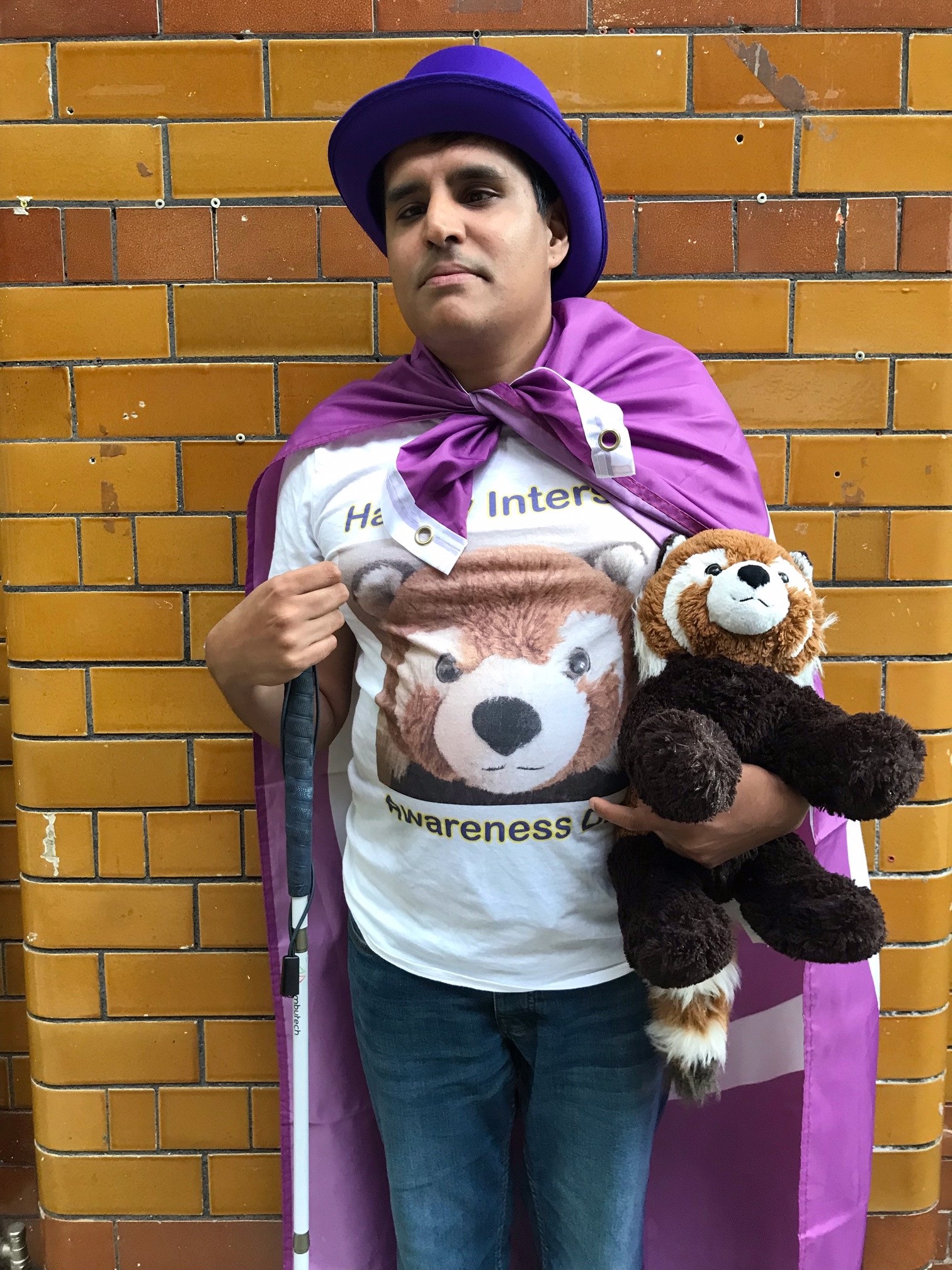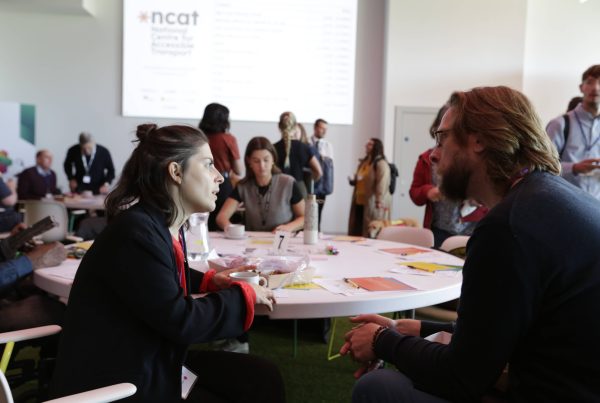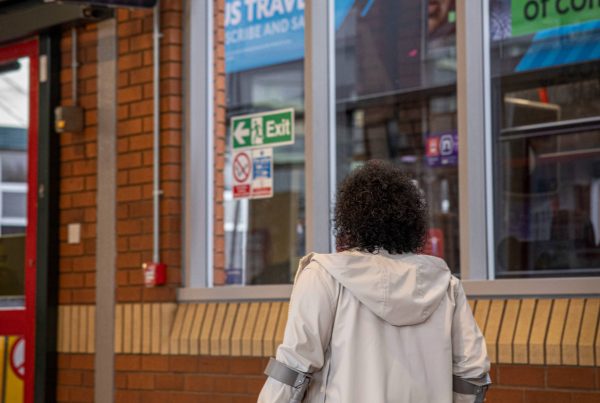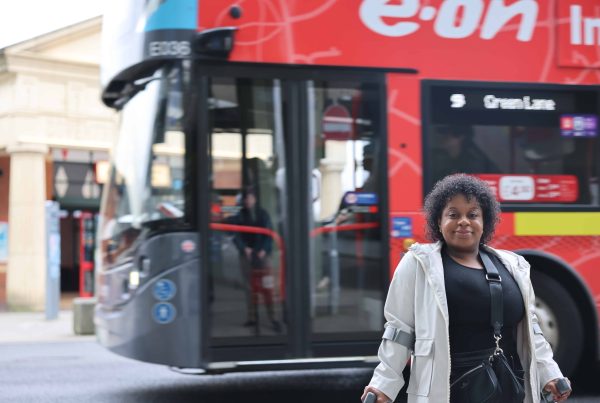
Anis is no stranger to making their voice heard. Based in Leeds, the 37 year old has long been a grassroots activist for disabled people’s rights.
They were a community curator for the ‘Nothing About Us Without Us’ exhibition at the People’s History Museum in Manchester in 2023 and they are a member of a number of rights groups, including the Disabled People’s Organisations Forum.
Anis has been partially-sighted since birth and registered blind for the last 18 years. They are neurodivergent and intersex, and an active member of Disabled Black Lives Matter.
“I wanted to join the CAT panel because transport is a big issue that’s brought up time and time again,” says Anis. “People are very aware of public transport at the moment: with floating bus stops, operating franchises and train strikes.
“When ticket offices at stations were threatened with closure, passengers as a whole all came together to fight it. That was a great illustration of how meeting the needs of disabled people actually benefits everyone.”
Anis regularly uses trains to travel between Leeds and Bradford, and across to Manchester, as well as buses for travelling locally. They say accessibility is a challenge.
“Disabled people are not able to spontaneously go somewhere, we still don’t have that freedom. I carry a monocular to help me see departure boards at stations. I’d usually take a photo, but the information refreshes too quickly and I can’t do that, it comes out blurry, so I have to allow extra time for my journey. The number of wheelchair spaces is still limited on buses and trains, there’s conflict with parents with pushchairs and people have to fight for space with luggage.”
Anis says that the work ncat are doing is important for the needs disabled people have now but also for the future.
“People are living longer and they may become disabled later in life and so accessible transport will be necessary for even more people. There is also an environmental concern, with the development of driverless cars. They could present more barriers for disabled people – a recent study suggested that some vehicles couldn’t identify a person in a wheelchair crossing the road.”
Anis feels it’s really important that ncat exists and would encourage others to get involved by joining the CAT panel.
“It’s an opportunity for disabled people to get involved, and to be a part of the research. ncat offers compensation for your time and feeds information back to you, which I really appreciate. You’re included in the whole process, not left in the dark.”
If you are interested in joining the CAT panel and getting your voice heard, click on the link below to go through to our sign up page.


